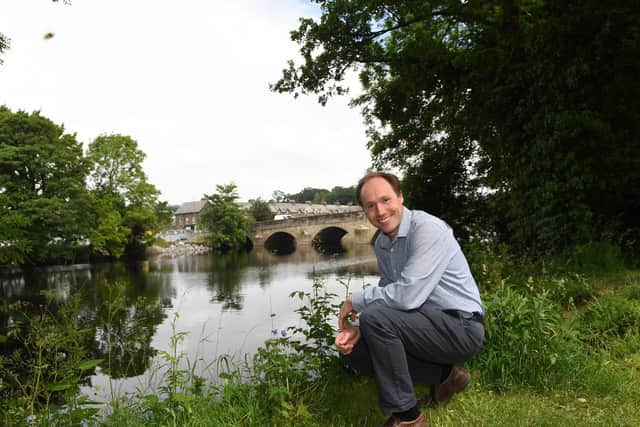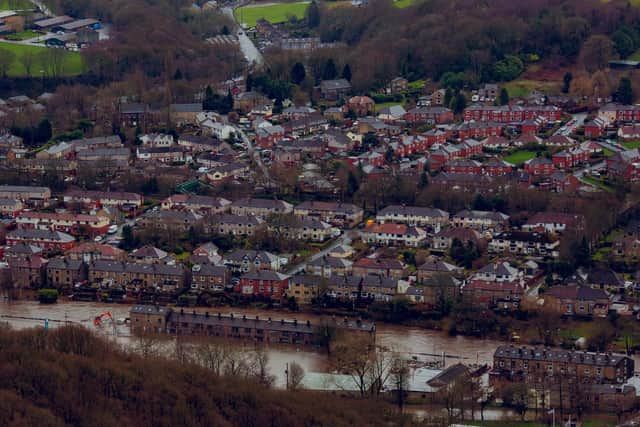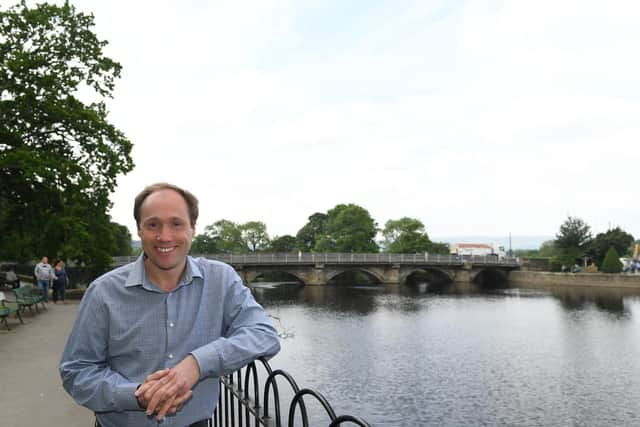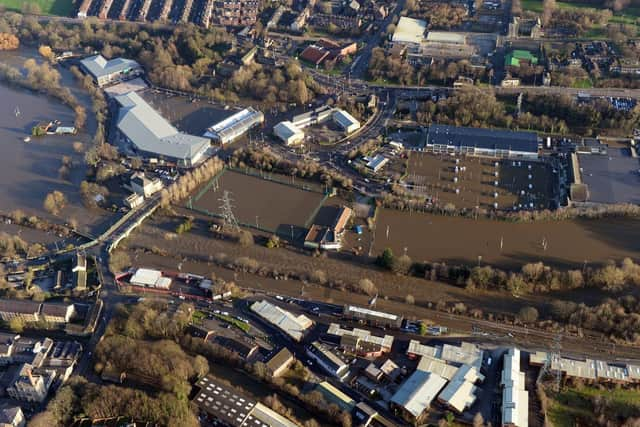Call for 'future proof' plan to be rolled out across Yorkshire to help in fight against flooding
and live on Freeview channel 276
Joseph Holden, a Professor from the Department of Geography at the University of Leeds, has said a long term strategy and investment at local level is needed with “urgency” to ensure communities are better equipped, in the midst of a climate emergency.
Professor Holden said currently flood funding is “piecemeal” and “reactionary” while expertise is “too WhiteHall centric” due to under utilising expertise across Yorkshire and the Humber despite a wealth of knowledge.


Advertisement
Hide AdAdvertisement
Hide AdHe said: “There are a lot of key organisations across the region that are really willing and want to work together to reduce flood risk going forward.
“The barrier to that really is funding from central government.
“There is all sorts of work that needs to be done on a landscape scale right across Yorkshire - I think people want to do that work but there is a key barrier around funding.”
He added: “The Whitehall accounting process… doesn’t factor in what we could do with the landscape to reduce flood risk across the whole of the Yorkshire catchment.


Advertisement
Hide AdAdvertisement
Hide Ad“We could do so much more working together in a really joined up way, if the funding could be unlocked for those wider measures.”
Yorkshire has been repeatedly hit by severe flooding in recent years.
Early this month this newspaper reported that in the winter of 2019/2020, floods in Calderdale cost local companies more than £70m in losses, according to research carried out by the University of Leeds.
Storm Ciara caused Calderdale’s fourth major flood in just eight years and brought 10 miles of damage across the borough.


Advertisement
Hide AdAdvertisement
Hide AdThe direct cost of clear-up after Calderdale’s two biggest floods in 2015 and 2020 was around £2m, though the Government reimbursed the council for £1.4m. This does not include the cost of repairs to buildings and infrastructure such as roads and bridges which were necessary afterwards.
The Residents of Fishlake, South Yorkshire saw severe flooding hit 160 homes and businesses in November 2019.
While the devastating Leeds Boxing Day floods of 2015 - which was equivalent to a one-in-200 year disaster - resulted in damage to more than 2,600 homes and 700 businesses.
Professor Holden, who is also the director for the water@leeds organisation - one of the world’s largest water research institutes based at the University of Leeds - stressed the need for urgent action on a flooding plan for the whole region due to the climate and ecological emergency.


Professor Holden said: “The situation is urgent.
Advertisement
Hide AdAdvertisement
Hide Ad“I’m not confident that changes will be fast enough by the Government, but what I am confident about is the determination of the people in Yorkshire and the organisations in Yorkshire to really make a difference and to just get on and showcase to the rest of the world how we can manage our landscape to make it more resilient to climate change.”
He added a long term local plan was a “win-win” for the Government as it would create a much more resilient economy.
“There is a huge win-win from getting ourselves organised and showcasing to the rest of the world exactly how we can manage the landscape and manage the environment to future proof it against climate change, which we know is coming, and it’s happening right now.
“We will be able to have a much more resilient economy and a much more resilient society, better wellbeing and this will mean investment in the region will grow.”
Advertisement
Hide AdAdvertisement
Hide AdA spokesman for the Department of Environment, Food and Rural Affairs (Defra) Defra, said: "Since 2015, we’ve invested more in flood defences for Yorkshire than any other region – with £496 million being spent to better protect more than 66,000 properties.
"Looking ahead, we are investing a record £5.2 billion over six years in 2,000 new flood defences, and the Environment Agency is working with local representatives in Yorkshire on allocations.
"Our transformative approach to reducing flood risk will look at measures across the whole landscape and river catchments, driving long-term local action and investment - and harnessing the power of nature alongside traditional defences."
Comment Guidelines
National World encourages reader discussion on our stories. User feedback, insights and back-and-forth exchanges add a rich layer of context to reporting. Please review our Community Guidelines before commenting.
